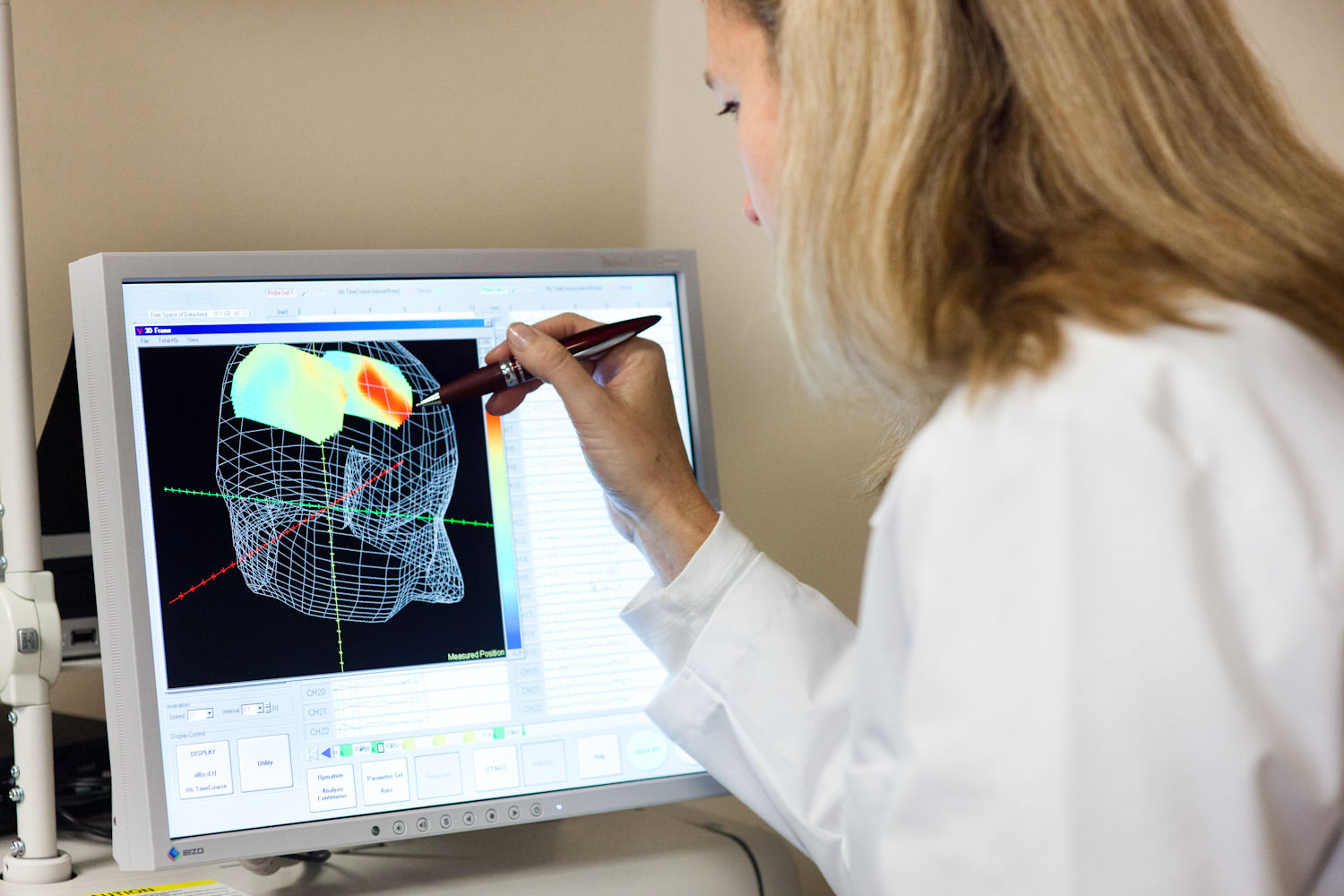
Neuropsychology is a leading branch of brain science that studies how the structure and function of the brain relates to specific cognitive (thinking) and psychological (emotional) processes.
Pate’s use of neuropsychology to guide our brain injury rehabilitation has been ground-breaking. We believe it plays a critical role in rehabilitation as many medical problems may improve shortly after injuries yet cognitive and emotional changes can continue to interfere with activities.
After a brain injury, many important skills like memory, critical thinking and judgment can be affected. Every brain injury is different and can result in a range of symptoms that have a unique impact to the individual and their family.
Rehabilitation psychologists and neuropsychologists are integral members of our interdisciplinary clinical teams because they specialize in understanding how the structure and function of the brain relates to specific psychological processes, like memory, critical thinking and judgment, and how those processes may affect behavior.
Their goal is to understand how an individual’s specific injury affects their thinking and behavior, and apply this knowledge in their treatment plan.
Neuropsychological Testing
For many patients, neuropsychological testing is performed so Pate doctors can learn more about the individual's level of function. This critical evaluation helps identify an individual’s strengths and weaknesses in brain functioning to guide treatment recommendations. This testing can last a few hours to a full day.
Tests measure all aspects of brain functioning including cognitive skills, motor functioning and emotional functioning (which can be vulnerable to changes after various types of brain injuries and medical complications.)
Neuropsychological testing also helps us make appropriate recommendations by providing answers to important questions:
- Can they live alone?
- Are they able to make financial decisions?
- Is mobility or coordination an issue?
- Does the patient have difficulty communicating?
- Is the patient able to drive?
- Are they experiencing memory problems or having difficulty learning new things?
- What accommodations may help increase independence or performance in various settings like work?
This early assessment allows neuropsychologists to observe the patient carefully after admission to modify treatment as needed. Important information from family and friends often also helps shape the treatment program to build upon the patient’s prior skills and preferences.
Neuropsychologists and Treatment
Neuropsychologists guide the ongoing assessment of each patient's progress, making sure each team member keeps the whole person in mind. Pate neuropsychologists focus on the patient’s strengths, weaknesses, interests, occupation, hobbies and personality to design a customized treatment plan that takes the real person into account. Neuropsychologists fine tune and adjust the treatment plans as time goes on to maximize treatment so that the person can thrive in the real world.
All three of our locations—Dallas, Anna, and Fort Worth—offer a full range of neuropsychological and psychological services from highly trained psychologists who are experts in assessing, diagnosing and treating people with neuro-cognitive issues.
